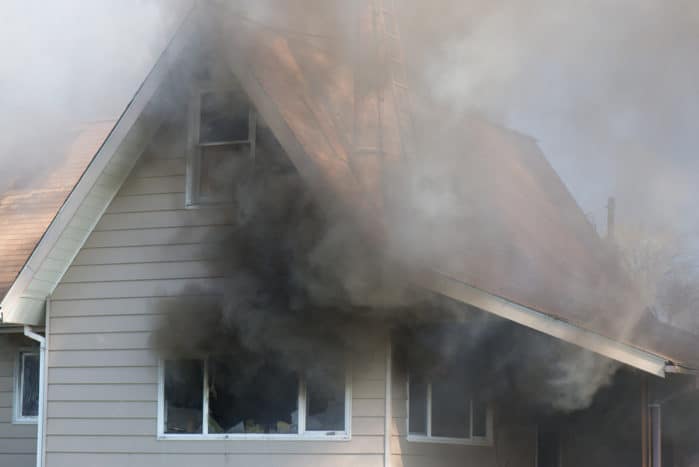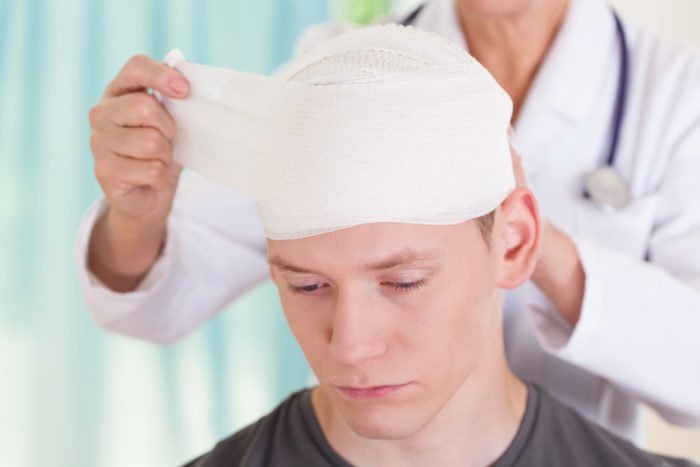Contents:
- Medical Video: How To Last Longer In Bed Using the Breathwalking Technique
- Breath, a process that can be done consciously and unconsciously
- Knowing bradypnea, a disorder of the respiratory system that is quite dangerous
- What are the triggers and causes of slow breathing?
- 1. Using opioids
- 2. Hypothyroidism
- 3. Poisoning
- 4. Head injuries and other conditions
- How to deal with bradypnea?
Medical Video: How To Last Longer In Bed Using the Breathwalking Technique
The human respiratory system consists of a series of organs that are responsible for taking oxygen and releasing carbon dioxide. Generally, the average breathing rate depends on a person's age. However, physical activity can also improve breathing. However, people with bradipnea have abnormal breathing rates. Yes, bradipnea is a respiratory disease. So, who might experience this disease?
Breath, a process that can be done consciously and unconsciously
Did you know that the breathing process that occurs in the body is very complex? The process of breathing involves many organs in the body, not just the respiratory tract. The brain stem acts to control breathing by sending a signal to the spinal cord to the muscle that is responsible for carrying oxygen to the lungs. Then, blood vessels check the amount of oxygen and carbon dioxide in the blood to adjust to the rate of breathing.
The breathing process does occur without you even knowing it. However, you can also control your breathing process consciously. For example, doing breathing exercises by breathing in deeper air and slowly removing it.
Reporting from Live Strong, according to experts from John Hopkins Medicine, one health care center in Baltimore describes normal respiratory rates in adults ranging from 12 to 16 times the breath per minute. If you carry out strenuous activities, normal breathing rates can increase up to 45 breaths per minute.
While according to doctors from Children 's Hospital of Philadelphia, the normal respiratory rate in infants is 40 times a minute and can slow down to 20 times the breath per minute when he sleeps. When level pernapasan is below or more than the number determined and occurs when not doing activities, this can be a sign of a medical problem in the body.
Knowing bradypnea, a disorder of the respiratory system that is quite dangerous
Well, one of the conditions that interferes with a person's breathing rate is bradipnea (bradypnea). Bradipnea is a condition that indicates the speed of breathing to be reduced and slowed so that the total breath per minute is far below the normal average.
Bradipnea is a condition that often occurs when you are asleep or when you wake up. However, this condition is different from sleep apnea (breathing pauses when sleeping) or dyspnea (panting or shortness of breath).
What are the triggers and causes of slow breathing?
Although it often occurs during sleep or waking up, some conditions that cause bradipnea are like:
1. Using opioids
Opioids are painkillers that cause high levels of addiction. This substance is often misused so that its use in some countries is not allowed. Opioids affect receptors in the brain, which can slow the rate of breathing.
Side effects can be life-threatening and cause total breathing to stop, especially in people who have obstructive sleep apnea and lung disease. Some opioids that are often misused are morphine, heroin, codeine, hydrocon, and oxycodone. The risk of side effects becomes greater if the drug is used in conjunction with cigarettes, alcohol, or sedatives.
2. Hypothyroidism
The thyroid gland is the largest endocrine gland in the body, which has many important functions, one of which produces hormones. Hypothyroidism is a disorder of the thyroid gland which causes hormone production to become less active.
As a result, hormone levels decrease and can slow down various processes in the body, including breathing. This condition can weaken the respiratory muscles and cause oxygen capacity in the lungs to decrease. Other symptoms that usually occur in hypothyroidism are hair loss, chronic fatigue, and dry skin.
3. Poisoning
Poisoning from certain substances can affect the processes in the body, one of which slows breathing. One of the substances that interferes with breathing is sodium zide, a chemical used in airbag car to expand. This substance is also found in pesticides and explosives. If inhaled in a certain amount, these chemicals can slow down the central nervous system and cardiovascular system and cause symptoms of nausea, vomiting and headaches.
Then, there is also carbon monoxide which is gas produced from combustion or vehicle fumes. This gas can be inhaled and mixed in the blood and causes oxygen levels to decrease, headaches and dizziness, coma, and failed breathing.
4. Head injuries and other conditions
Getting an injury to the head, precisely in the brain stem area (lower head) can cause brachia (decreased heart rate) and bradycardia. Usually a head injury often results from a sharp object, a fall, or an accident.
In addition, people with pneumonia, pulmonary edema, chronic bronchitis, chronic asthma, syndrome Guillain-Barré or amyotrophic lateral sclerosis (ALS) also has symptoms of decreased breathing speed.
How to deal with bradypnea?
If your breathing rate feels slower than normal, immediately check with your doctor. You will probably undergo a physical examination and check your pulse, body temperature and blood pressure. Treatment and care will be determined after a disease diagnosis is known.
In an emergency situation, patients with slow breathing conditions should receive immediate treatment, such as:
- Patients addicted to opioids or overdoses are required to attend rehabilitation, therapy, and take drugs for naloxone to reduce opioid poisoning.
- Poisoned patients must receive oxygen assistance, treatment, and monitoring vital organs.
- Patients who experience a head injury must get surgery, treatment, and further treatment.
- Patients with hypothyroidism must get daily treatment to reduce symptoms.
















